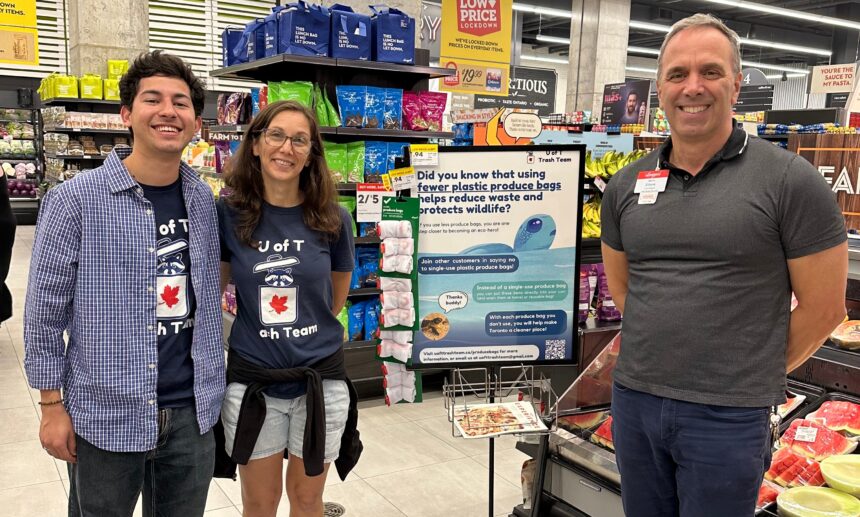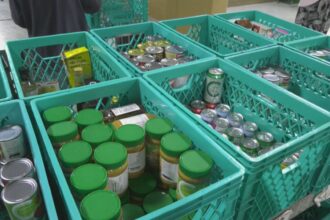The humble plastic produce bag—that flimsy, transparent vessel cradling your apples and carrots—has become an unexpected battleground in Canada’s war against single-use plastics. As I wandered through Toronto’s Kensington Market last week, I couldn’t help but notice the growing number of shoppers armed with reusable mesh produce bags, a small but significant rebellion against the estimated 3.2 billion plastic produce bags Canadians discard annually.
“It’s the unnecessary waste that gets to me,” says Mira Chen, a 34-year-old shopper I encountered carefully placing Brussels sprouts into a cotton mesh bag. “These plastic bags have a useful life of maybe 20 minutes, then they’re trash for centuries.”
The federal government’s single-use plastic ban, while tackling shopping bags and straws, has conspicuously left produce bags untouched. This regulatory gap has sparked a grassroots movement of consumers and retailers developing innovative alternatives to address what Environment Canada estimates is nearly 15,000 tonnes of plastic waste generated yearly from produce bags alone.
Several Canadian retailers are pioneering solutions to this persistent waste stream. Loblaws has expanded its pilot program offering washable mesh produce bags for $2.50 at select stores, while Sobeys has introduced compostable alternatives in its organic produce sections. According to recent market research, sales of reusable produce bags have increased by 67% in the past year across major Canadian retailers.
What’s particularly encouraging is the diversity of alternatives now available. BeeGoods, a Vancouver-based company, has seen tremendous success with its beeswax-coated cotton produce bags that extend the life of fresh produce while eliminating plastic waste. “We’ve shipped over 100,000 units since launching in 2022,” notes founder Samantha Peng. “Consumers are clearly ready for sustainable alternatives.”
The zero-waste movement has also influenced the retail landscape. Stores like NU Grocery in Ottawa and Nada in Vancouver have eliminated produce bags entirely, encouraging customers to bring their own containers or use provided paper bags when necessary. This model has proven financially viable, with both retailers reporting consistent growth despite initial concerns about consumer resistance.
Technological innovation is driving further progress. Montreal-based startup EcoFibre has developed a water-soluble produce bag that fully dissolves in your sink after use, leaving no microplastics behind. Though currently priced at a premium, the company projects costs will decrease by 40% as production scales up over the next two years.
The transition hasn’t been without challenges. A survey conducted by the Retail Council of Canada found that while 78% of consumers express concern about plastic produce bags, only 22% consistently bring alternatives. Price sensitivity remains a barrier, with many shoppers reluctant to invest in reusable options despite their long-term economic and environmental benefits.
Some Canadian municipalities have moved ahead of federal regulation. Victoria and Vancouver have both included produce bags in their plastic ban bylaws, effective January 2026, creating a patchwork of regulations that industry observers say may accelerate national policy changes.
The international context adds further pressure for Canadian action. France banned plastic produce bags in 2017, while New Zealand will implement similar restrictions next year. These precedents demonstrate the feasibility of transitioning away from single-use plastic in this context.
For those looking to make the switch, options abound. Beyond commercial alternatives, DIY approaches have gained traction through social media. Upcycled t-shirts transformed into produce bags and repurposed pillowcases have become trendy solutions shared across platforms like TikTok and Instagram, further normalizing plastic-free shopping habits.
As Canada continues navigating its complex relationship with plastic waste, the produce aisle represents a microcosm of broader challenges and opportunities. The simple act of choosing how we carry our fruits and vegetables reflects a profound shift in consumer consciousness and market dynamics. As these alternatives continue gaining momentum, one question becomes increasingly relevant: in a world of innovative, accessible alternatives, can we justify continuing our dependence on single-use plastic produce bags?

























